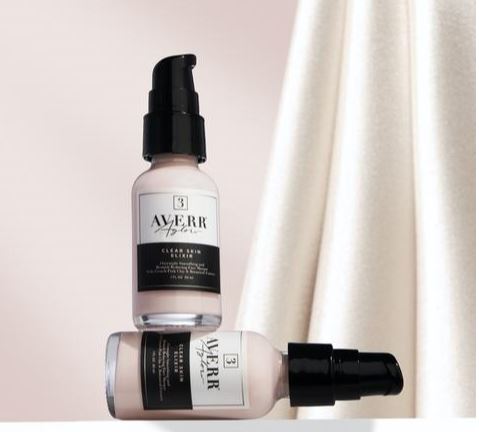Tea tree oil is a natural antibacterial oil which is extracted from the leaves of a native tree in Australia called Melaleuca alternifolia. It is an outstanding skin treatment, especially for people with oily, acne-prone skin, and that is why it is considered to be an excellent natural treatment for acne. Applying tea tree oil helps to thwart the development of Propionibacterium acnes, a Gram-positive bacterium which forms part of the natural flora of the human skin, large intestine, external ear canal, conjunctiva, and oral cavity.
 Tea tree oil contains antimicrobial compounds which help in preventing the growth of microbes. A microbe is an extremely small, i.e., microscopic, living thing. Bacteria, protozoa, and algae, for example, are microbes.
Tea tree oil contains antimicrobial compounds which help in preventing the growth of microbes. A microbe is an extremely small, i.e., microscopic, living thing. Bacteria, protozoa, and algae, for example, are microbes.
Tea tree oil is packed with striking antibacterial properties called terpenes. Terpene is a kind of volatile oil which works against Propionibacterium acnes, efficiently eliminating the bacterium that causes acne. It can also reduce the incidence or frequency of breakouts.
Even though the use of tea tree oil for acne is quite effective, the majority of the people don’t know how it works.
Steps for diluting, testing, and applying tea tree oil for acne
- Take 1 to 2 drops of tea tree oil and mix with 12 drops of carrier oil. Be cautious about using any extra oils on your face. If you do, you might be increasing the risk of exacerbating your acne.
- Before applying the diluted tea tree oil on your face, perform a small area test on the inside part of your elbow, and observe. Signs of an allergic reaction or skin sensitivity include burning, itchiness, swelling, and redness. If you have any allergy signs and symptoms, don’t proceed. If you are not allergic, continue reading.
- Clean your face using a gentle cleanser and wipe with a clean cloth to dry before applying.
- Apply the diluted tea tree oil by smearing it gently on the blemishes with a pad or cotton round.
- Allow it to dry. Then you can add, if you like, your regular moisturizer.
- Repeat this every morning after you get up and before you go to bed at night.
How it works
Tea tree oil for acne works its way into the pores of the skin, effectively disinfecting it. This crucial oil helps to unclog the sebaceous glands by penetrating deep inside the skin and unblocking the pores. Given that acne usually forms in the pores, this is where treatments should reach.
The oily, dead skin cells usually resist water but not oil, and that’s one of the reasons why tea tree oil offers the best solution, especially as far as very oily and acne prone skin is concerned. It destroys the acne-causing bacteria that live in the hair follicles, thus reducing the probability of further outbreaks. In addition to treating inflammation and calming the skin, this disinfection process helps dry off blackheads, whiteheads, as well as pimples. Put simply; it helps your skin return to normal.
Tea tree oil also works as a moisturizer solvent and cleanser. It easily removes dust and oil and helps to protect your skin from oxidative stress. When it is applied, tea tree oil typically mixes with the natural oil of the skin, thus preventing the clogged pores from becoming food for bacteria. With no nourishment, the bacterium that causes acne cannot exist or thrive.
Remember that if one of the conditions that lead to the development of acne is not present, it cannot take hold of your skin. Tea tree oil takes away more than one of those conditions, thus freeing you of those nasty spots.
You can also add a couple of drops of tea tree oil to your bath if other parts of your body are susceptible to acne.
Precautions
- Never apply tea tree oil directly to the skin. Dilute with a carrier oil, like coconut oil, olive oil, or almond oil.
- Avoid using on the area around the eyes
- Perform a patch test to ensure your skin does not react
Besides the above mentioned abilities, tea tree oil contains antibacterial, antiviral, antifungal, as well as antiseptic properties.
______________________________________________________
Interesting related article: “Getting rid of acne scarring.”

